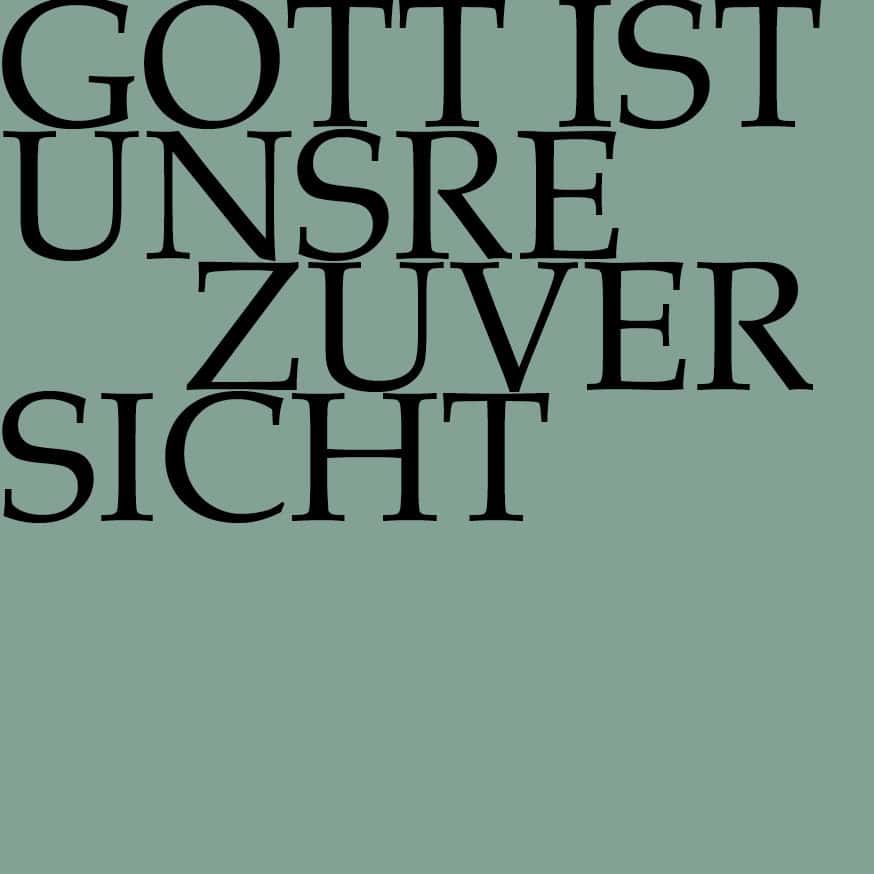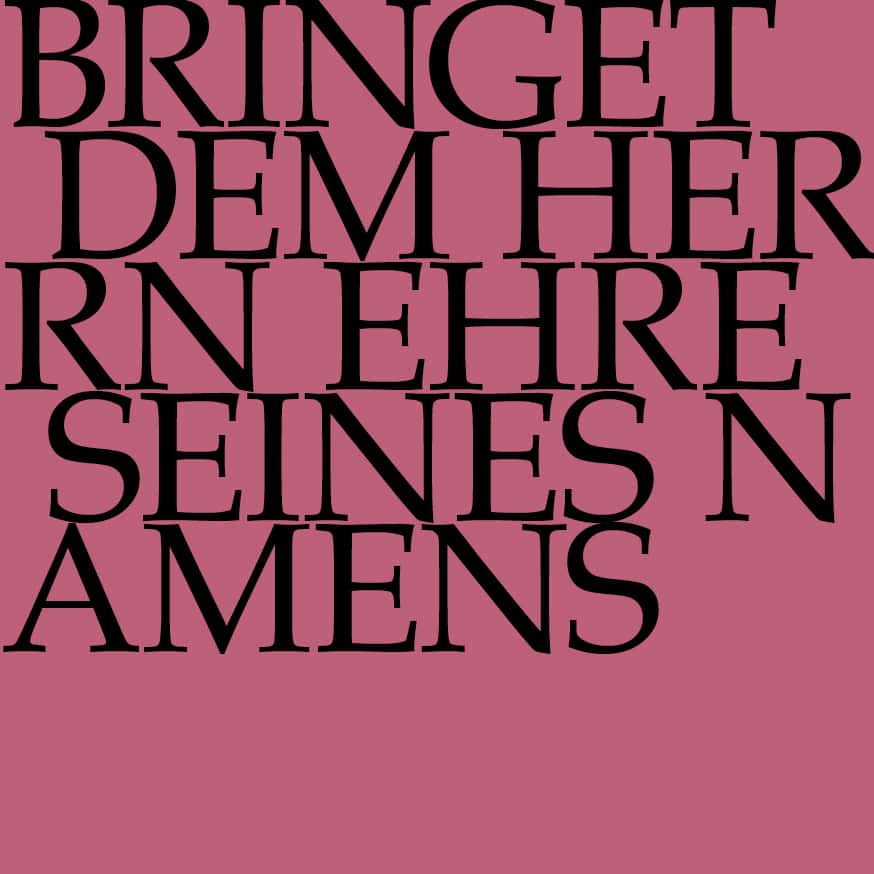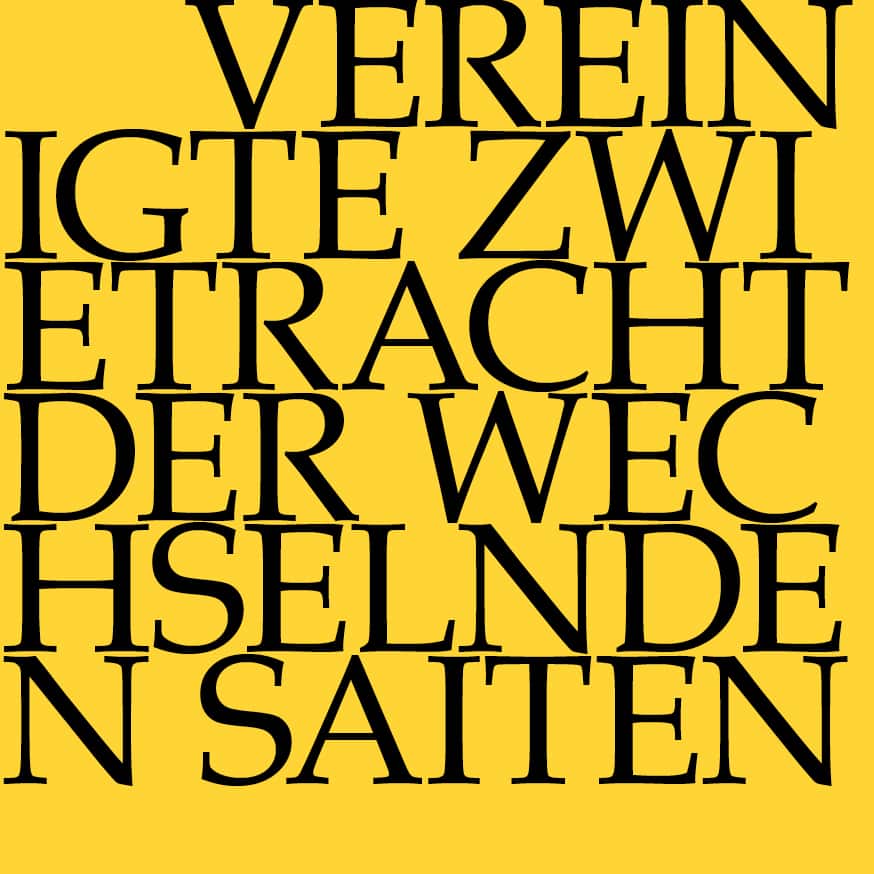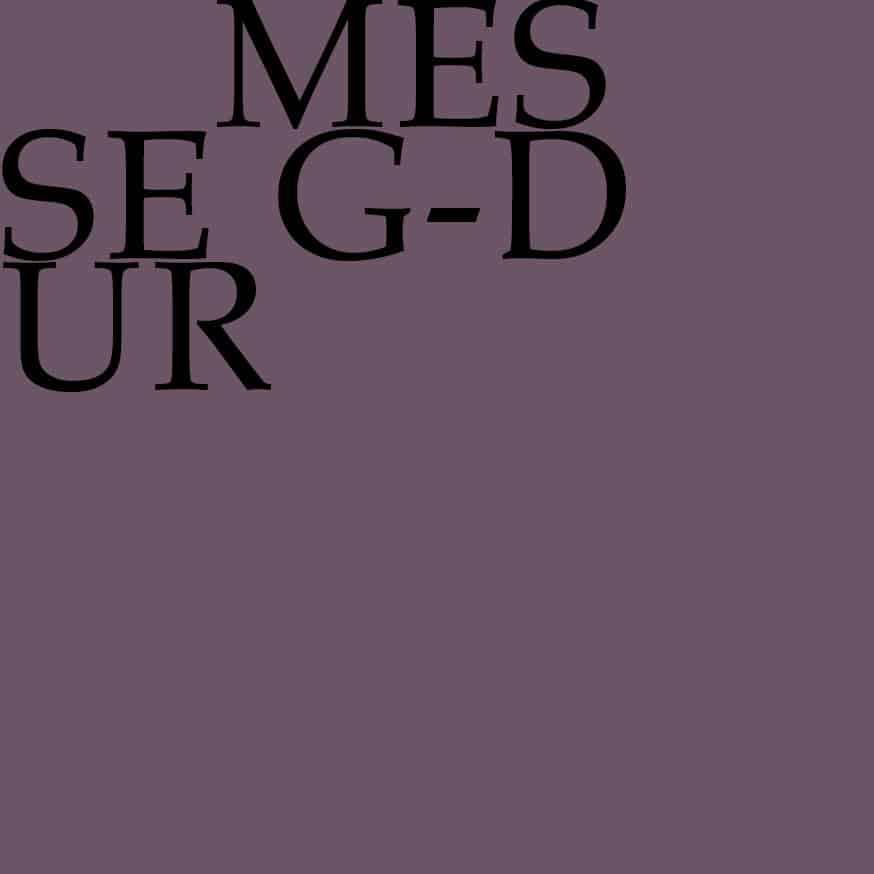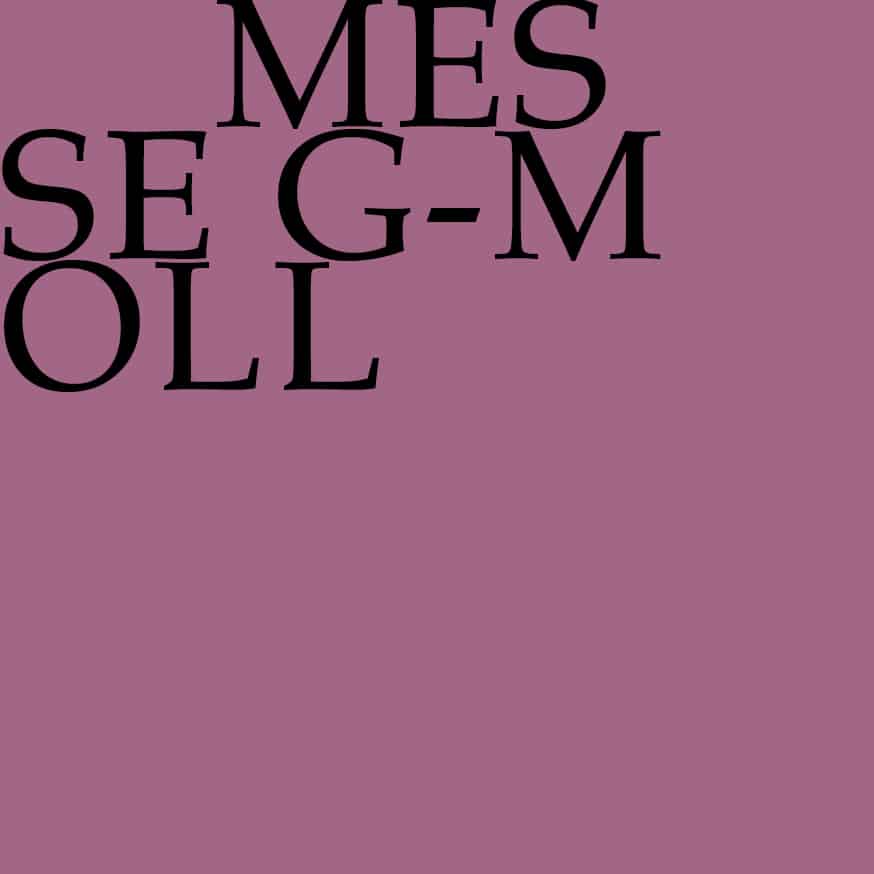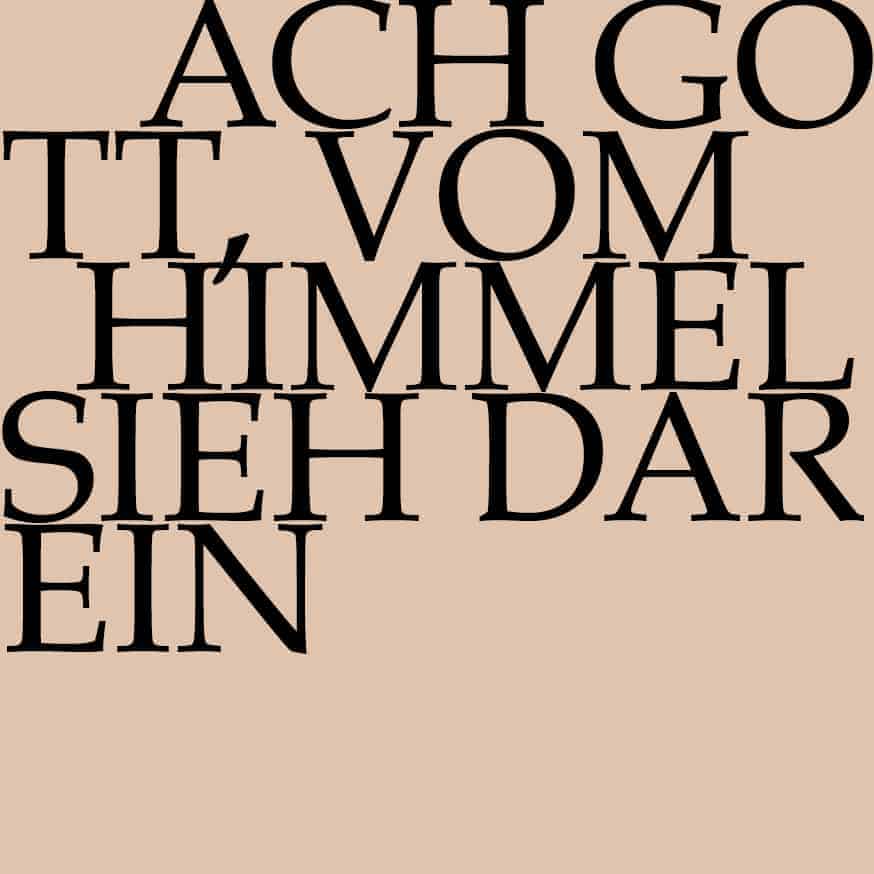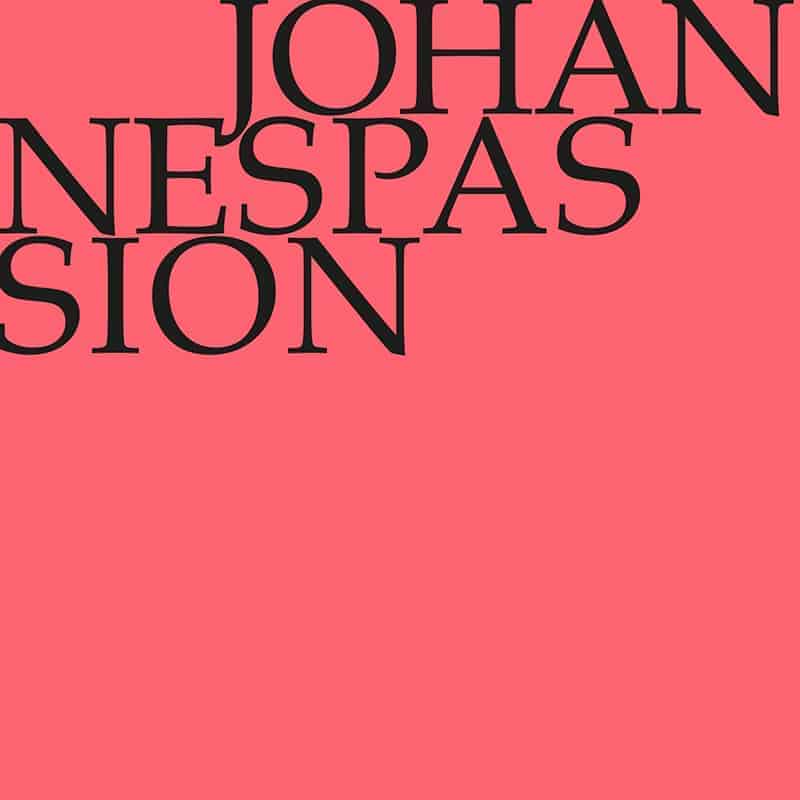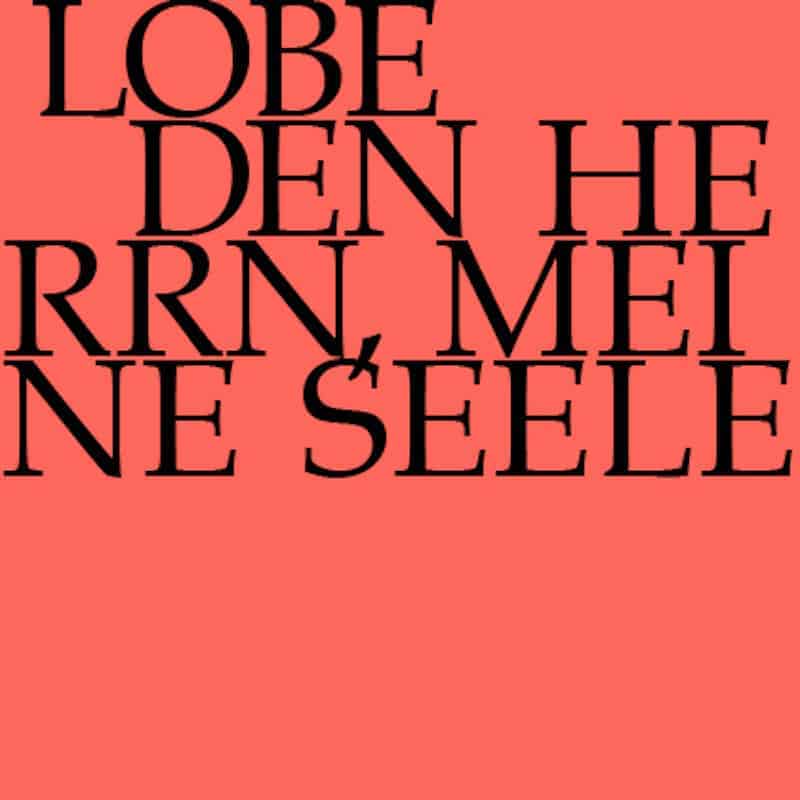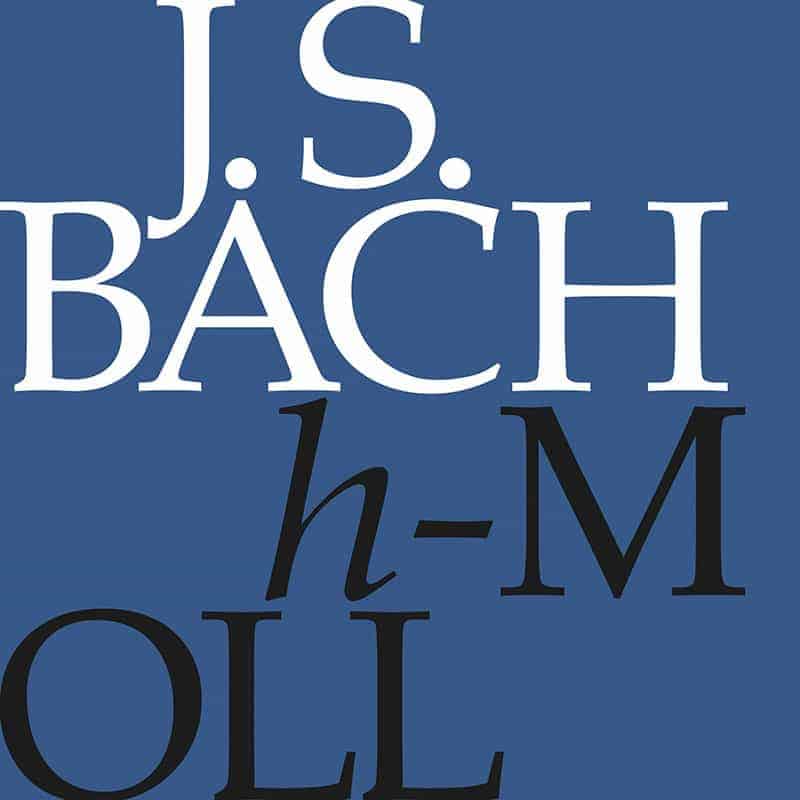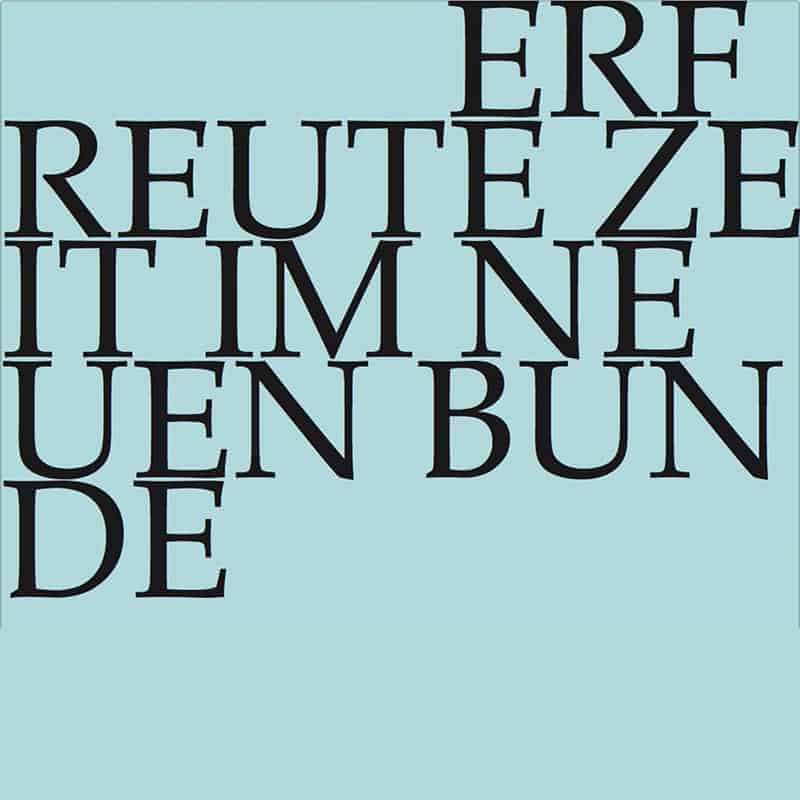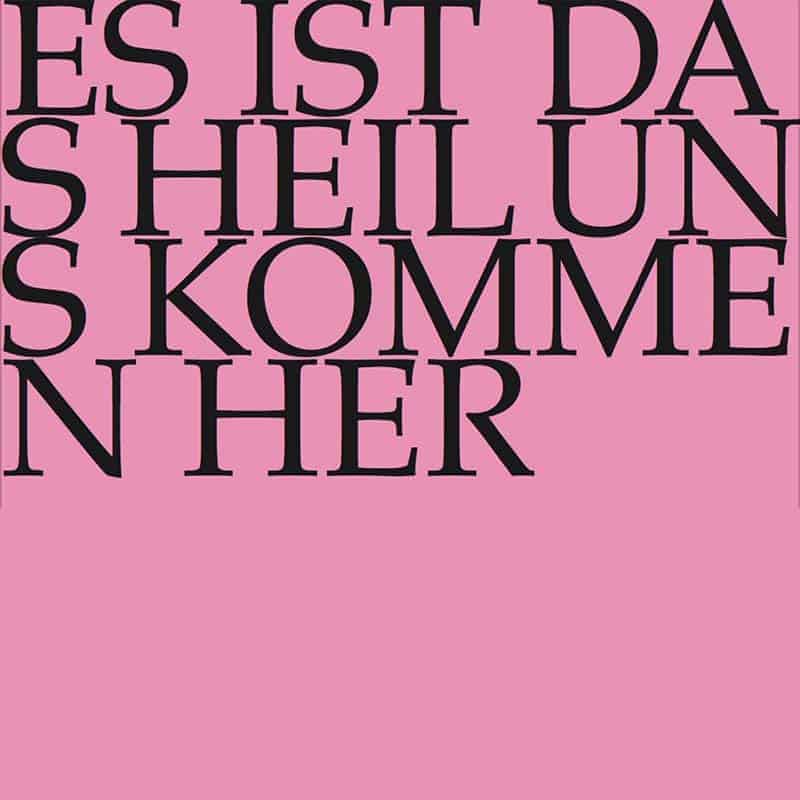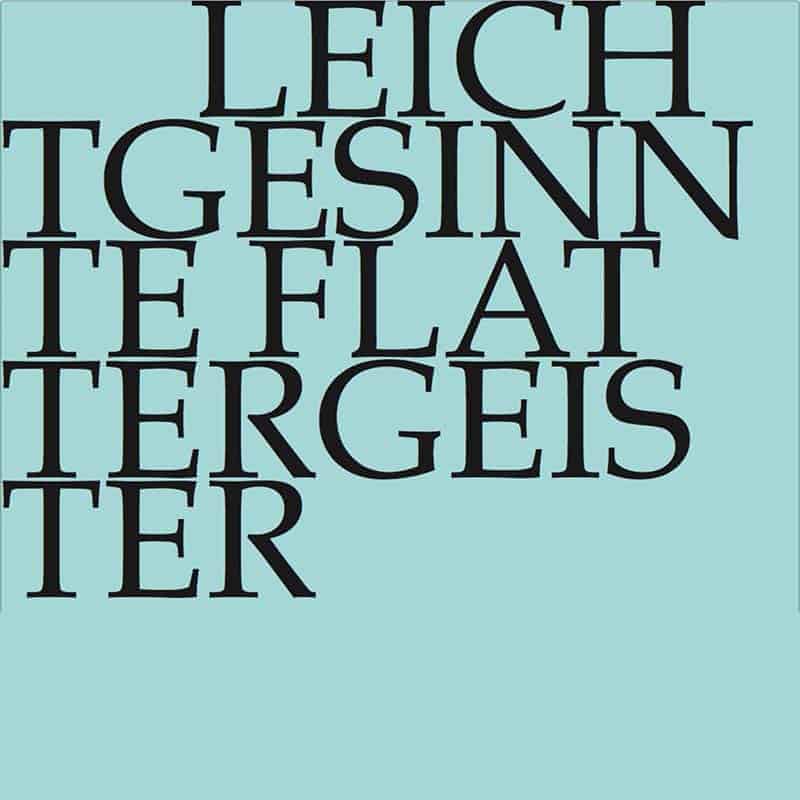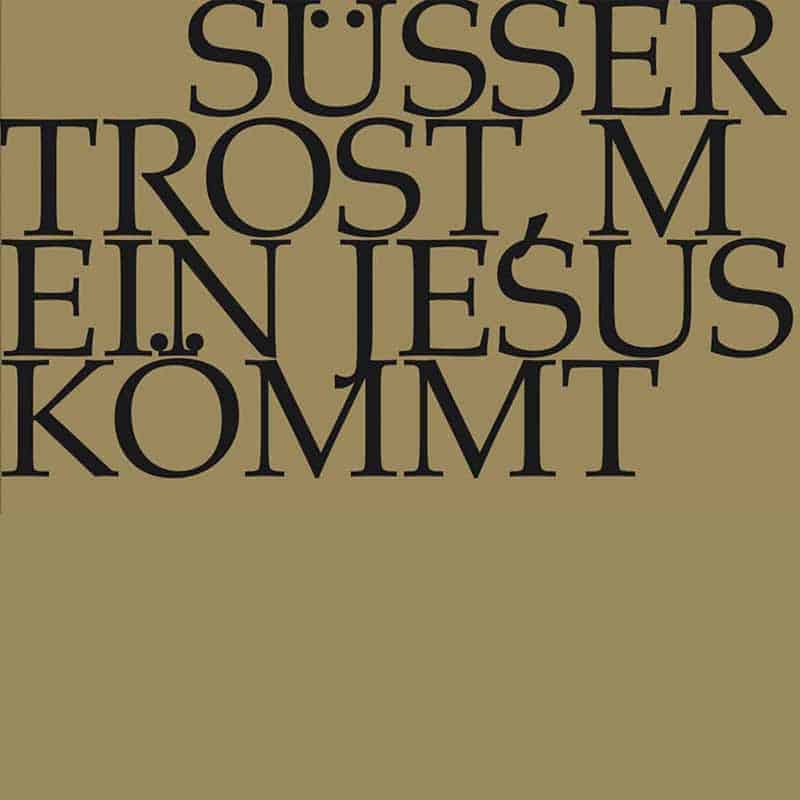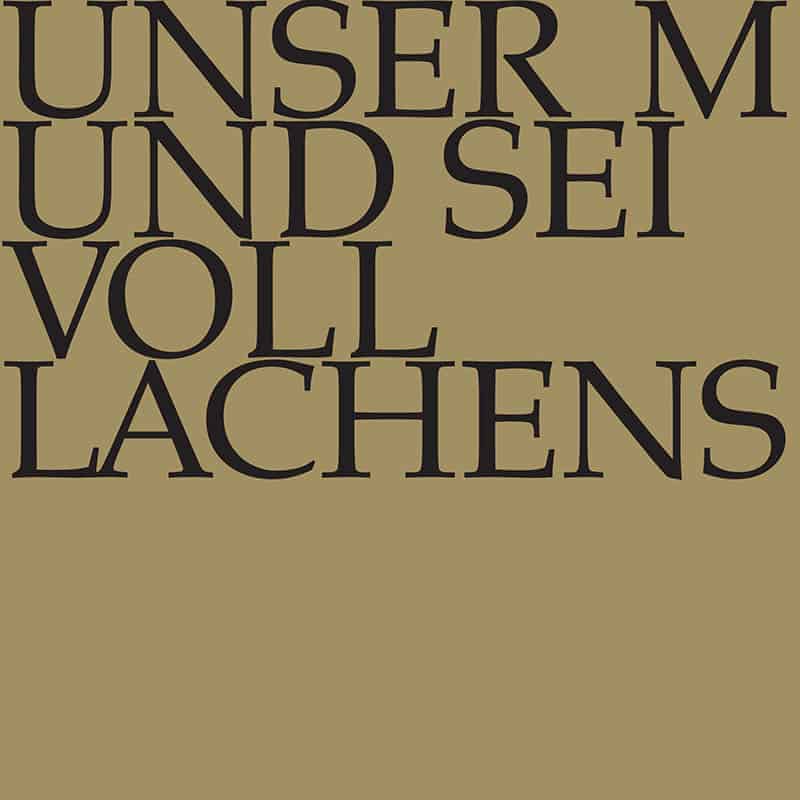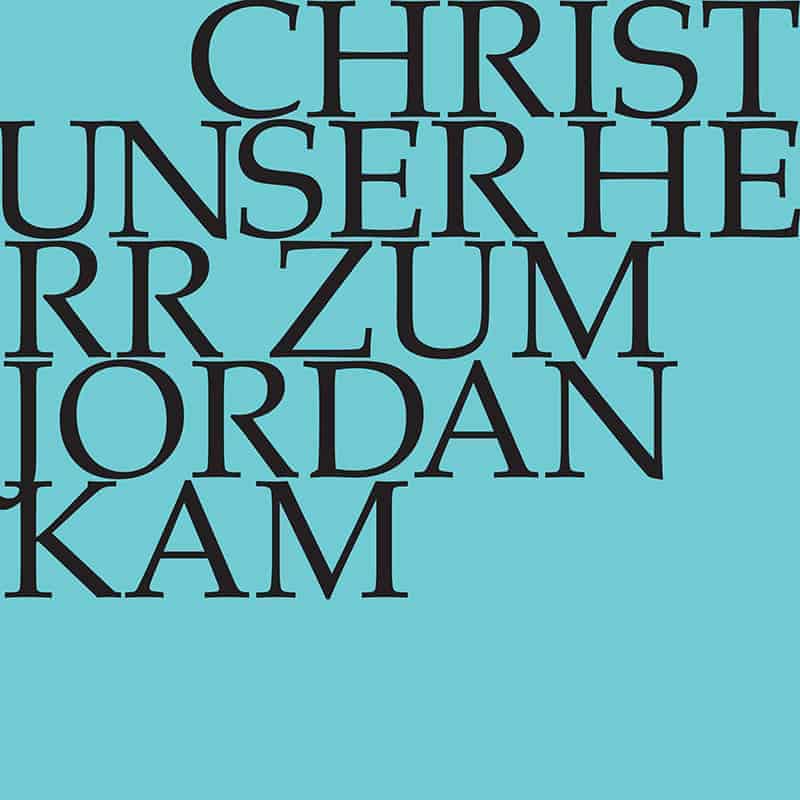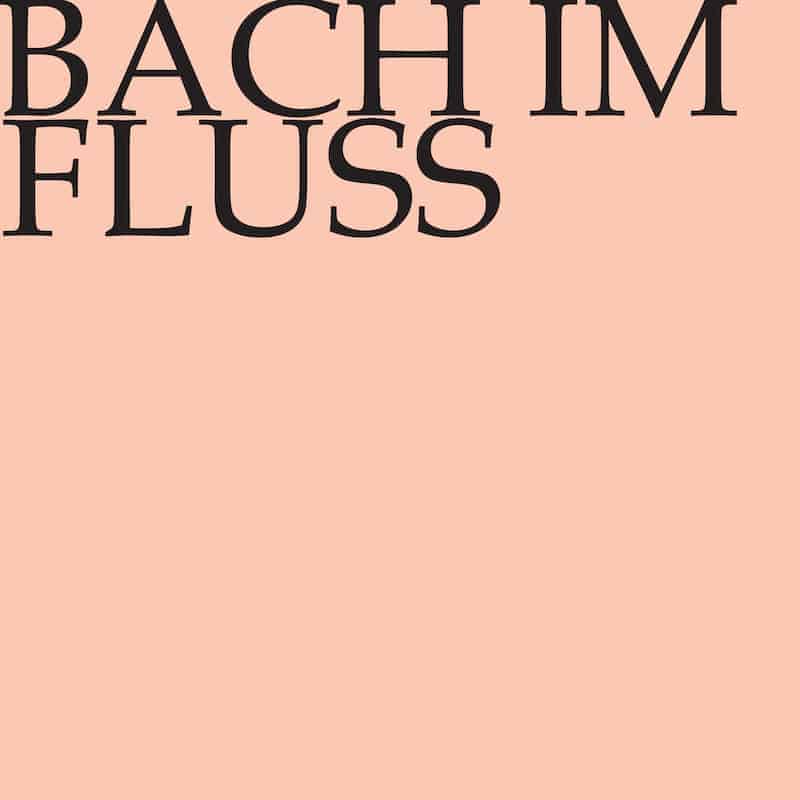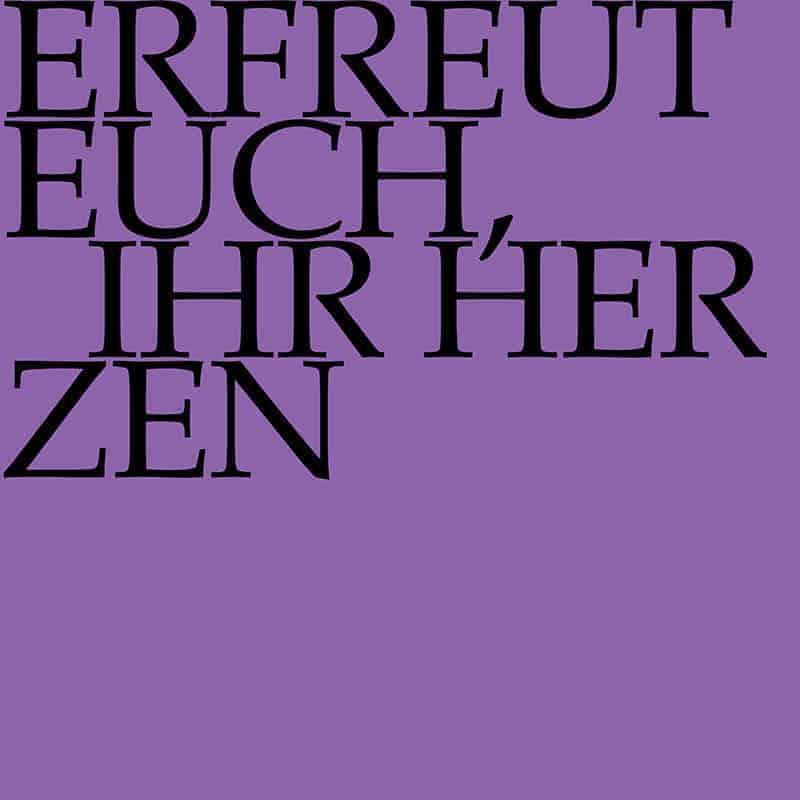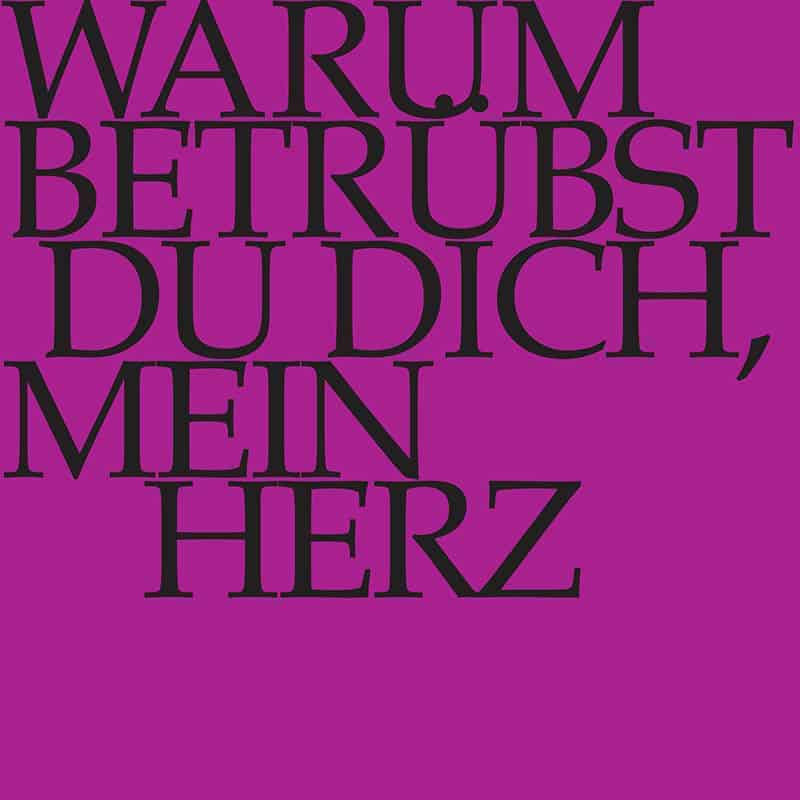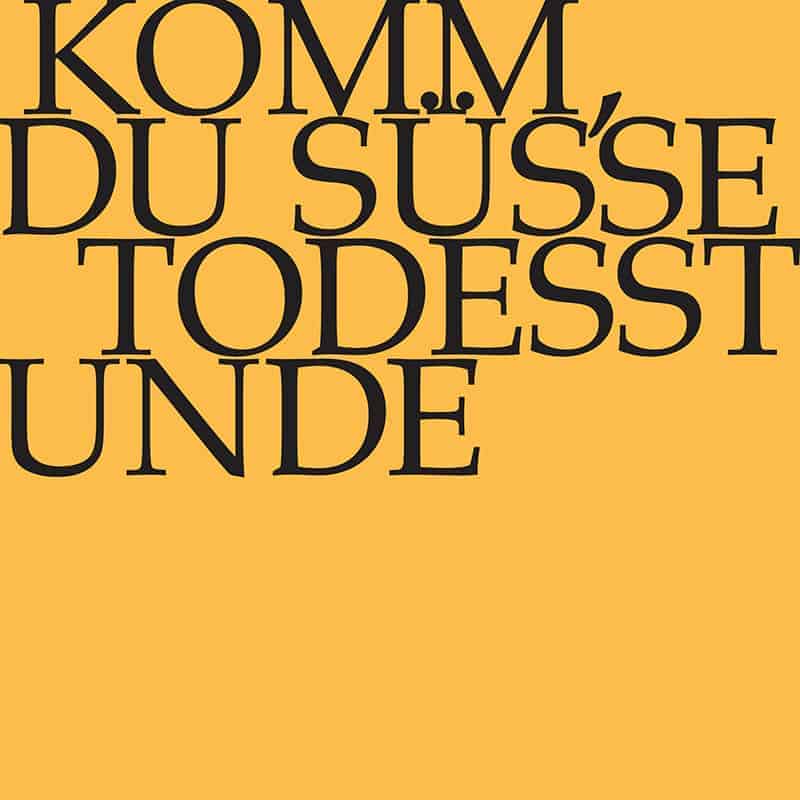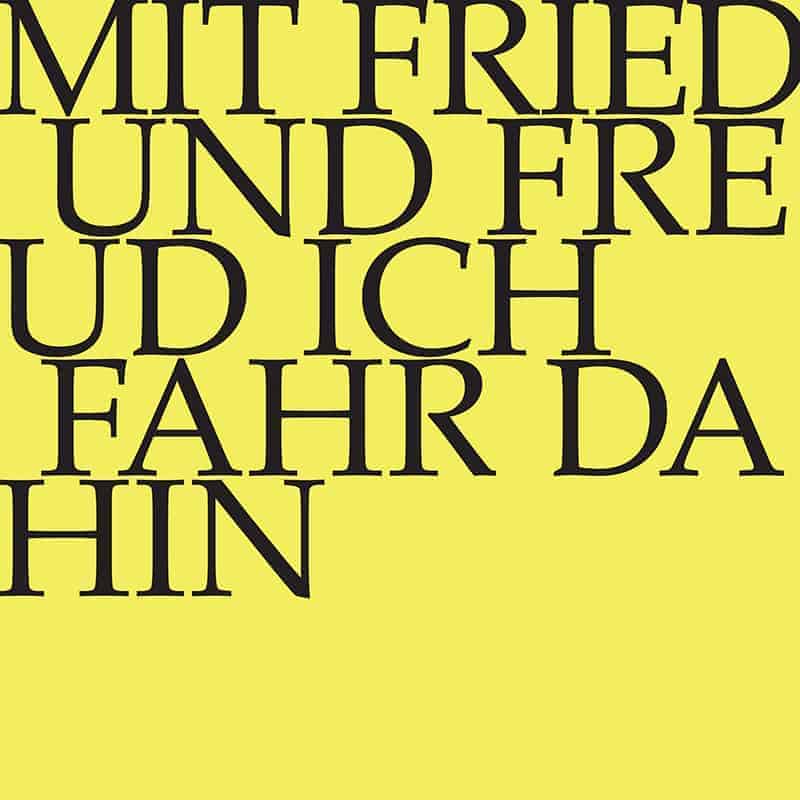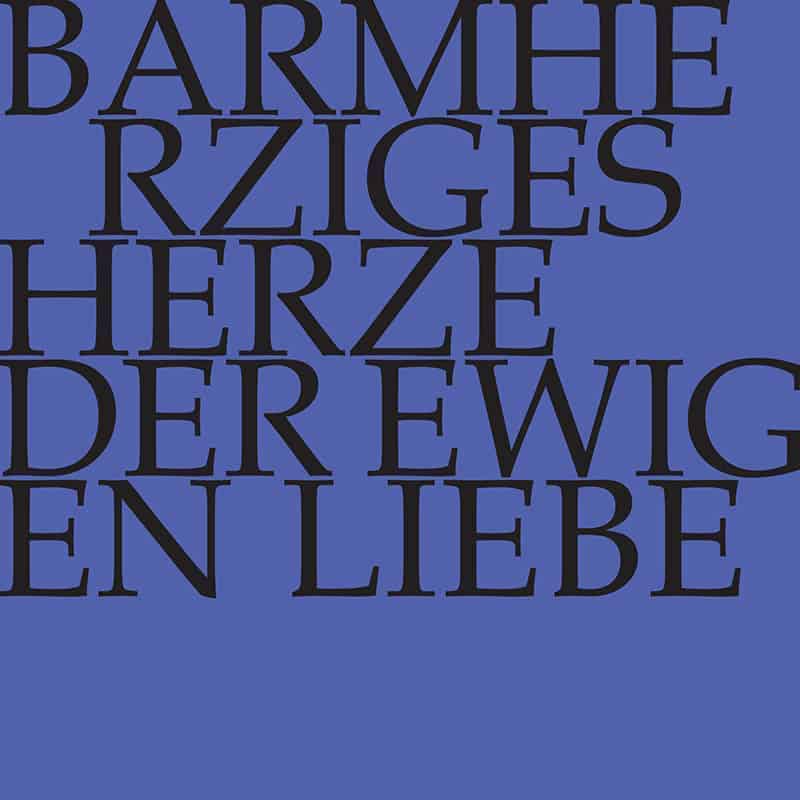(God is our true confidence) for soprano, alto and bass, vocal ensemble, trumpet I-III, timpani, oboe I+II and oboe d’amore I+II, strings and basso continuo
Archives
Bringet dem Herrn Ehre seines Namens
(Bring to the Lord honour for his name’s sake) for alto and tenor, vocal ensemble, trumpet, oboe I-III, strings and basso continuo
Vereinigte Zwietracht der wechselnden Saiten
(United division of strings ever changing) for soprano, alto, tenor and bass, vocal ensemble, trumpet I-III, timpani, transverse flute I+II, oboe I+II, taille, strings and basso continuo
Messe G-Dur
(Mass in G major) for soprano, alto, tenor and bass, vocal ensemble, oboe I+II, strings and basso continuo
Messe g-Moll
(Mass in G Minor) for alto, tenor and bass, vocal ensemble, oboe, strings and basso continuo
Ach Gott, vom Himmel sieh darein
(Ah God, from heaven look on us) for alto, tenor and bass, vocal ensemble, oboe I+II, trombone I-III, cornett, strings and basso continuo
Johannespassion
(St John Passion) No listener can be left unmoved by the bleak magnificence of the introductory chorus “Herr, unser Herrscher” (Lord, thou our master), set to the text of Psalm 8. Throbbing bass notes, streams of blood and violent blows in the middle voices as well as incessant friction in the mercilessly descending woodwinds create … Read More
Lobe den Herrn, meine Seele
(Praise thou the Lord, O my spirit) for soprano, alto, tenor and bass, vocal ensemble, flauto, oboe d’amore, oboe I-III, trumpet I-III, timpani, strings and basso continuo
Messe h-Moll
(Mass in B minor) for soloists, choir and orchestra The Mass in B Minor, hailed in 1818 as the “greatest musical composition of all times and all cultures” by its first publisher, Hans-Georg Nägeli of Zurich, is today revered as one of the greatest works in the history of classical music. Not only has the composition … Read More
Erfreute Zeit im neuen Bunde
(O joyous day of the new order) for alto, tenor and bass, vocal ensemble corno I+II, oboe I+II, violino concertato, strings and basso continuo
Es ist das Heil uns kommen her
(Now is to us Salvation come) for soprano, alto, tenor and bass, vocal ensemble, transverse flute, oboe d’ amore, bassoon, strings and basso continuo Composed for the Sixth Sunday after Trinity in 1724, cantata BWV 9 “Es ist das Heil uns kommen her” (Now is to us salvation come) proffers a charming display of the … Read More
Leichtgesinnte Flattergeister
(Insincere and fickle spirits) for soprano, alto, tenor and bass, transverse flute, trumpet, oboe, bassoon, strings and basso continuo
Süßer Trost, mein Jesus kömmt
(Comfort sweet, my Jesus comes) for soprano, alto, tenor and bass, transverse flute, oboe d’ amore, bassoon, strings and continuo With the opening notes of cantata BWV 151, we find ourselves transported to the very Elysium so longingly sought in the closing sections of “Wachet! Betet!” (BWV 70). Each Christmas, for a fantastic moment of … Read More
Unser Mund sei voll Lachens
(Make our mouth full with laughter) for soprano, alto, tenor and bass, vocal ensemble, trumpet I–III, timpani, transverse flute I+II, oboe I+II+III (oboe d‘amore, oboe da caccia), bassoon and strings Composed for Christmas Day in 1725 to an unconventional libretto by Georg Christian Lehms, cantata BWV 110 explores three bible verses in three successive arias … Read More
Christ unser Herr zum Jordan kam
(Christ did our Lord to Jordan come) for alto, tenor and bass, vocal ensemble, oboe d‘amore I+II, bassoon, strings and continuo According to Lutheran doctrine, baptism – in addition to communion and penance – belongs to the three sacraments introduced by Jesus and thus to the sacred rites practised by Lutherans after the Reformation. For … Read More
Bach im Fluss
a thematic collage of selected movements from cantatas and instrumental works compiled by Arthur Godel and Rudolf Lutz
Erfreut euch, ihr Herzen
(Rejoice, all ye spirits) for alto, tenor and bass, vocal ensemble, trumpet, oboe I+II, bassoon, strings and continuo Written in Leipzig, Bach’s Easter cantata BWV 66 (preserved in its 1731 version) is a sacred parody based on a Cöthen serenade of 1718. Bach opens the work by taking the spectacular closing movement of the original … Read More
Warum betrübst du dich, mein Herz
(Why are you troubled, my heart?) for soprano, alto, tenor and bass, vocal ensemble, oboe d’amore I+II, strings and continuo
Komm, du süße Todesstunde
(Come, O death, thou sweetest hour) for alto and tenor, vocal ensemble, flute I+II, strings and continuo. First performed in 1716, cantata BWV 161 (“Come, O death, thou sweetest hour”) is distinguished by a fresh style and sensitive interpretation that clearly indicate its composition during the “cantata spring” of Bach’s tenure as concertmaster of the … Read More
Mit Fried und Freud ich fahr dahin
(In peace and joy do I depart) for alto, tenor and bass, vocal ensemble, horn, flute, oboe d’amore, strings and continuo. Throughout his chorale cantata project for the 1724/25 church year, Bach was not only required to compose compositions for the regular Sunday services, but also a hymn-based cantata for the Marian Feasts and other … Read More
Barmherziges Herze der ewigen Liebe
(O heart filled with mercy and love everlasting) for soprano, alto, tenor and bass, oboe, strings and continuo.


